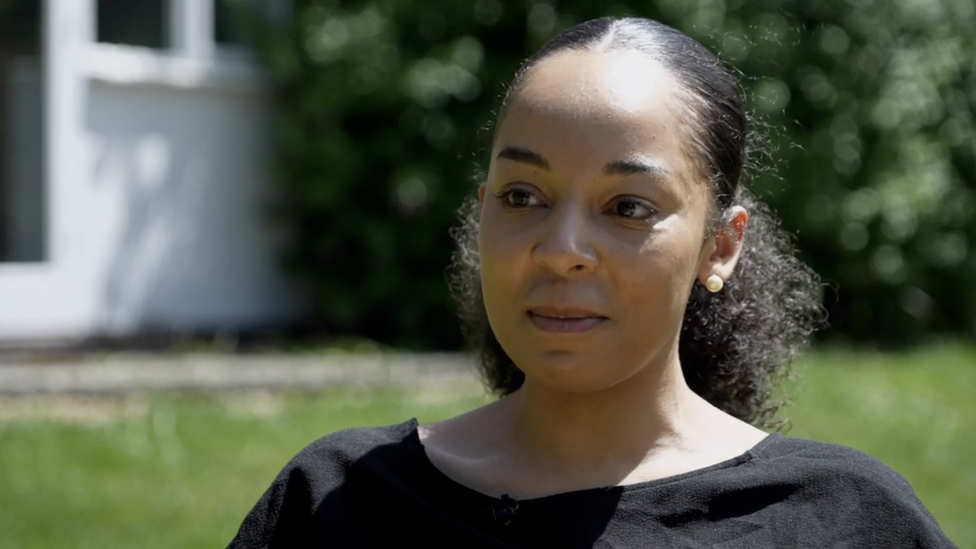Tackling racism a 'major challenge' for businesses

The report promotes inclusion across the North East business community
- Published
Tackling racism and discrimination are key to helping business in the north-east of England thrive, according to a report.
The North East Chamber of Commerce (NECC) Commission on Race, Ethnicity and Discrimination has urged businesses to adopt a "zero tolerance" approach to racism in the workplace.
Its chair said discrimination and racial prejudice was blocking progression for people of black and minority ethnic (BAME) backgrounds in the region.
Nagma Ebanks-Beni said: "This is not simply a moral issue, it is a problem that is holding back our businesses."
The NECC's Building inclusive places: Anti-racism in North East businesses report made for challenging reading, Ms Ebanks-Beni said.
Formed with input from business leaders, specialists and policymakers, the report was commissioned to explore and understand barriers to opportunity created by racial and ethnic discrimination in the North East.
It said racism "continues to be pervasive in the North East" and was a prominent feature for young people growing up in the region.
In response to what it called a "major challenge" of addressing racism, the report said the NECC would "require business leaders to engage in a learning journey that will be difficult, demanding and sometimes uncomfortable".
'Turn conversation into action'
The report said tackling barriers to inclusion on the grounds of race and ethnicity was "important on moral grounds alone" but could also bring economic benefits to businesses by improving employee retention, boosting the company’s reputation and enhancing creativity and decision making.
Anti-racist recruitment practices were described as "crucial to address racism and discrimination", and businesses were advised to proactively engage with BAME communities to break down barriers to workplace engagement.
The commission urged businesses to provide opportunities for the retention, promotion and progression of people from BAME backgrounds.
One member said without this, there was a risk that they are "invited to the party, but not allowed to dance".
The report made a series of recommendations including adopting a zero tolerance policy to racism, committing to frequent training on race, ethnicity and discrimination and being aware of the risk of bias during recruitment and anonymising job applications.
Rhiannon Bearne, executive director of policy and representation and deputy CEO at the NECC, said: "Now is the time to turn conversation into action.
"Whatever the size of your business, your sector or your role, each one of us has a part to play in making the North East the most inclusive, diverse and equitable place it can be."
Follow BBC North East on X (formerly Twitter), external, Facebook, external and Instagram, external. Send your story ideas to northeastandcumbria@bbc.co.uk.
- Published15 June 2022

- Published9 November 2023

- Published25 May 2022
